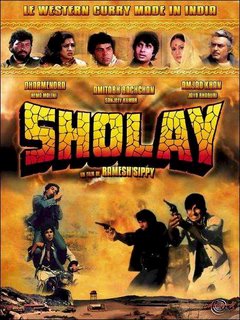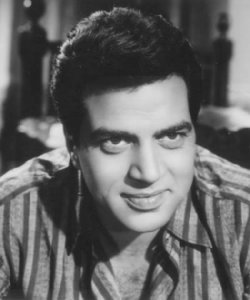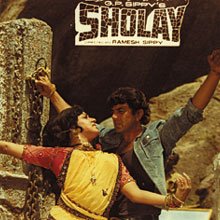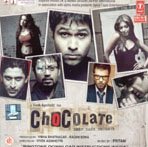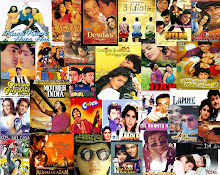Director: Rakyesh Mehra
Producer: Rakyesh Mehra, Ronnie Screwvala
Cinematography: Binod Pradhan
Music: A.R. Rahman
Lyrics: Prasoon Joshi, Nacim and Blaaze
Screenplay: Rensil Dsilva
Art Direction: Allan Amin
Cast: Aamir Khan, Alice Patten, Madhavan, Soha Ali Khan, Kunal Kapoor, Siddharth, Sharman Joshi, Atul Kulkarmni, Kirron Kher, Waheeda Rehman, Anupam Kher
Quick Take: Historic events of the Indian revolt against British colonialism are set against the backdrop of the lives of present-day college students. The film is beautifully shot. Scenes are fluid and realistic. Music is treated as background more like Muszak than performances. Aamir Khan’s acting is layered, subtle, and superb. He generously shares the screen with the other actri, each of whom portrays their varied characters with energy and believability. The story is a call to idealism with a terrible twist at the end that echoes with images of Tiananmen Square.
Review
The opening prison scene in sepia sets the stage for the blend of past and present as reenactments of British acts of brutal suppression of Indians seeking freedom from their colonial yoke mix with images of rowdy college students filming a documentary of Indian revolutionaries Bhagat Singh, Rajguru, Ashfaqulla Khan, Ram Prasad Bismil, Durga Bhabhi and Chandrashekhar Azad.
The story of a young British woman’s goal of making a documentary of the Indian revolutionaries inspired by her grandfather’s diary wraps around the present day story of the lives of young college students. Her grandfather, Major McKinley, participated in Britain’s attempts to squelch rising protests after World War I by capturing, torturing, and hanging the young revolutionaries. His diary entries foretell the fall of Britain’s rule of India.
After Sue’s (Alice Patten) production company nixes the project she has been working on for two years, she packs up her materials and goes to India to make the documentary on her own. She stays with a friend, Sonia (Soha Ali Khan) on a college campus and begins to audition students for the roles. The auditions are humorous much like “American Idol.” Frustrated she has not found anyone to play the revolutionaries, Sonia, takes Sue to a party to lift her spirits.
Bonfires, beer, music, and pranks entertain the crowd of students at the party. Sonia greets several students and laughs at their antics. DJ (Aamir Khan) is seen with a friend atop a stonewall drinking beer while bending backwards over the river below to see who can drink the most without falling in. As Sue watches, she realizes Sonia’s friends would be perfect for her documentary and enlists Sonia to help persuade them to act in her film. Sue joins in the party as the students dance and gyrate randomly on the beach to western music.
Scenes of fast cars and motorcycles, drinking, and seeking easy sexual favors from girls flash by as the students head toward DJ’s home. There, as the group eats dinner, scenes from the past blend with the present as the story of the revolutionaries continues in flashbacks. Sue implores them to help her saying, “They were heroes. They fought for their country’s freedom.” The students are unimpressed. Later DJ tries to explain to Sue why they seem aimless and why he and the others love college. Their country is over-populated, has major unemployment problems and other seemingly insurmountable problems. In college, we are masters of our destinies. After college, we are at the mercy of fate. At least on campus, I am somebody. But when I get out I will be nameless, faceless, lost in the crowd.”
Gradually, we meet each student. Karan’s father (Anupam Kher), who is rich, greets his son with questions. Has Karan decided which American college he will attend? When Karan (Sidddharth) mutters a few words, his father says in disgust, “Yours is the SMS generation, no conversation beyond four lines.” His father fails to see his son’s confusion and need for a goal beyond making money. A phone call regarding the sale of cheap airplane parts interrupts their interaction.
Laxman’s Muslim family berates him for his associations with non-Muslims saying “This country has never accepted Muslims.” To which Laxman (Atul Kulkarni) replies, “I can not fill myself with hate.”
India’s fight for independence from British Imperialism was harder for their nation than it was for the American colonies. The American colonists had vanquished the native population through murder, disease, and relocation, so they only had the British army to fight. Whereas in India, hundreds of tribes of various religious beliefs had existed for thousands of years, internal conflict among the various groups kept the population from uniting against British rule. But, the young revolutionaries were Hindi, Muslim, and Sikh. They had overcome their differences to fight for a greater cause, the freedom of their country. That Sue, a Britain, has to explain this to the students is ironic. One student remarked, “They would call you nuts today, if you said you wanted to fight for your country.”
Eventually, the students agree to do the documentary and many scenes follow of the rehearsals mixed with youthful outings and pranks. In the face of what they think their world has become, they do not feel they have anything in common with the revolutionaries they portray.
The massacre of hundreds of unarmed people in Jallianwallah Bagh on April 13, 1919, by the British, was the spark that set off the revolution. The event is reflected in horrific reenactment flashbacks. This act of violence turned a non-violent people into revolutionaries.
Music scenes are shot to blend with the story. Essentially, the students prance to a musical background of youthful songs as they carouse in the city streets.
Up until the interval, the film is replete with humorous asides such as when the students are leaving a movie theater and they explain to Sue, “That’s why India grows trees so we can dance around them.”
While roaming the countryside, Sonia’s boyfriend, Ajay, an Air Force pilot, asks her to marry him.

(Image source: http://www.hindu.com/2006/01/29/images/2006012904760201.jpg)
After the interval, the students watch the documentary they made. They are sobered by it. But quickly fall back to their previous perspective, “There’s nothing worth giving your life for. When we leave college, we will have to fight just for the basics. Corruption is in our DNA.” They believe it does not matter what you do, nothing will change.
Then, they see the news their friend Ajay (Madhavan), the Air Force pilot, has died in a plane crash. At first, there is speculation that the plane malfunctioned due to the purchase of cheap defective replacement parts. But, as public demands for an inquiry increase, government officials begin to denigrate the dead pilot’s reputation to place the blame on him.
His friends and family retaliate by holding a candlelight vigil to protest the defamation of his reputation and to support the investigation of corruption. The parts dealer, Karan’s father, reassures the Minster of Defence, “Public memory is short.”
When the vigil continues to bring pressure on the government, riot troops are called in and the crowd is beaten into submission. Ajay’s mother (Waheena Rehman) is beaten into a coma. This is how the Indian government answers its public.
When Laxman, is beaten up by his own family with his father’s consent for his acceptance of others, I knew how he felt.
The tenor of the film changed. The group of friends becomes comrade-in-arms as they plan their revenge against a corrupt and unresponsive government. One student notes, “The Defence Minster is suppose to safeguard the nation not sell it.”
Pleasures: I appreciated the modern look of the sets and cinematography. In addition, this is a great ensemble film shorn of excessive sentimentaility. Plus, I am a sucker for handsome men like Madhavan. His part may have been brief but he graced the screen with charm and electric good looks.
Regrets: I missed the full-blown song-and-dance routines but I understood what the director was trying to do with the music. My disappointment is that the solution the film offers seems as empty as the corruption it was meant to rectify.
Commentary
While I understand this film is a call to idealism, I could not see how the ending would achieve that result. This film has many scenes of violence. While they may have been “tastefully done” there were still too many for me. I have strong feelings about the use of violence. I want to believe people can find more diplomatic ways to resolve their differences.
What did the director hope the response would be to his film? Does he think young people will take to the streets and begin killing anyone they decide is corrupt?
